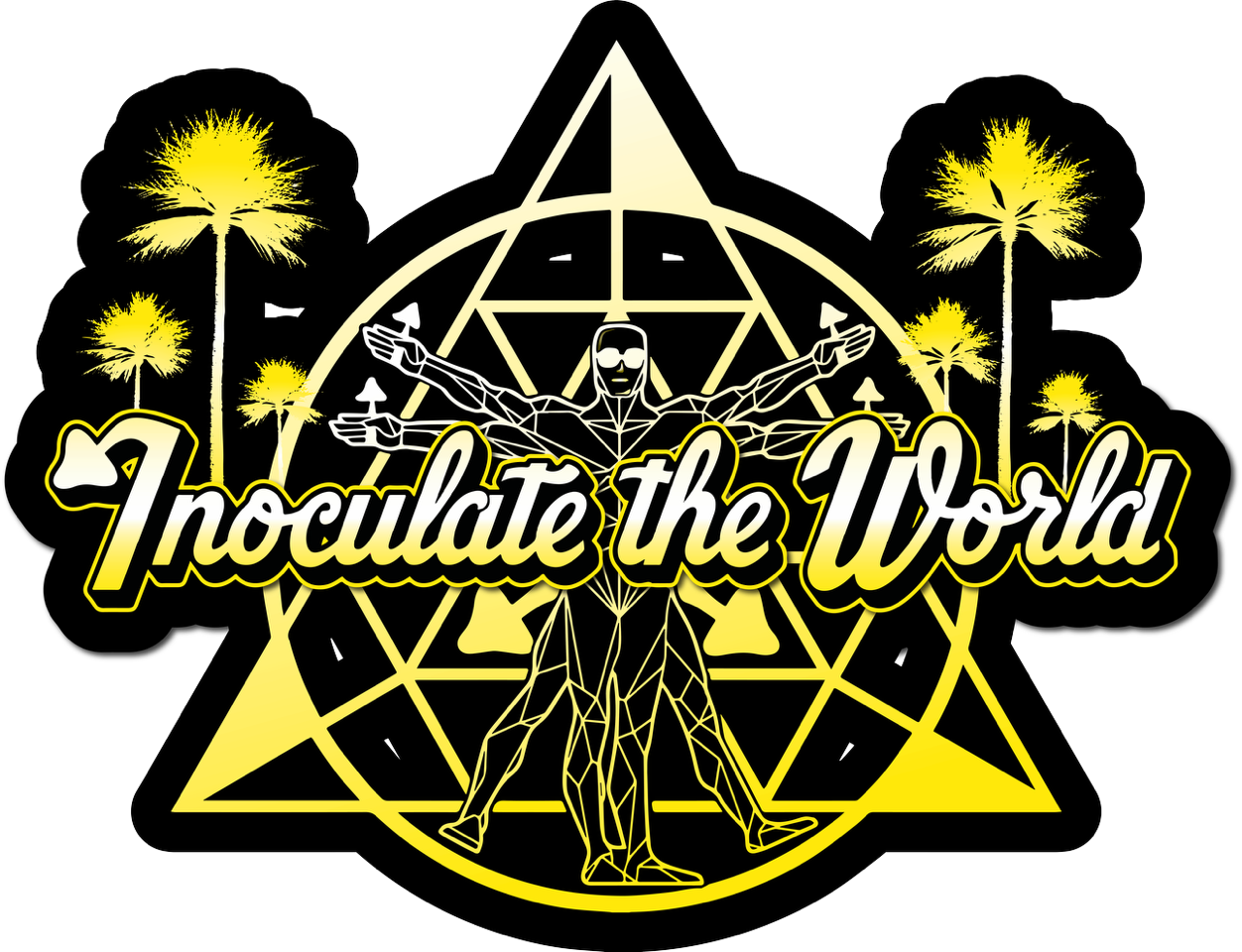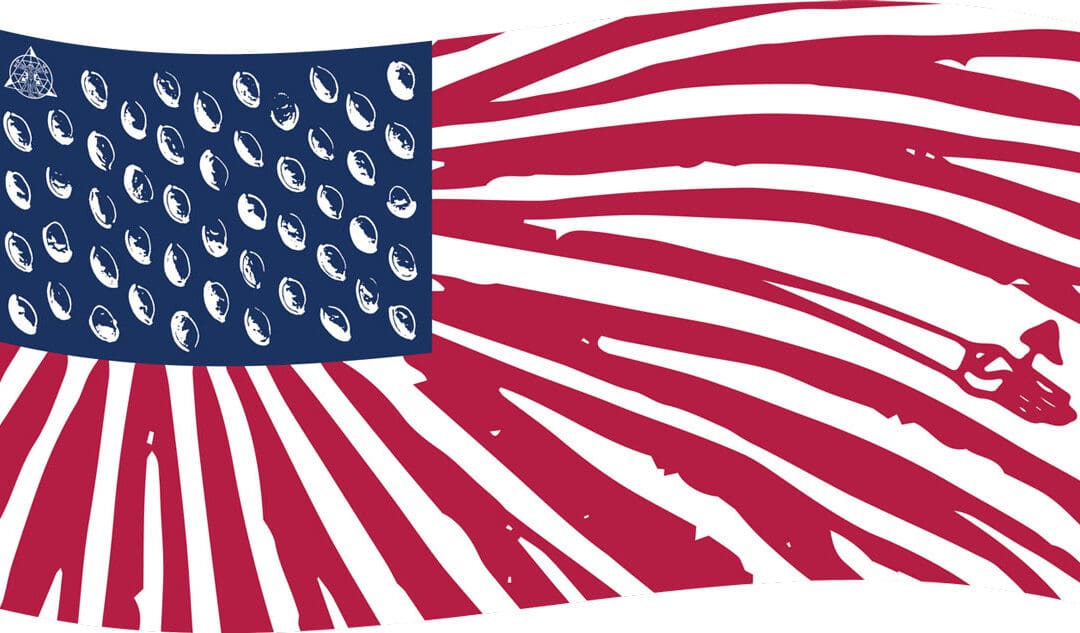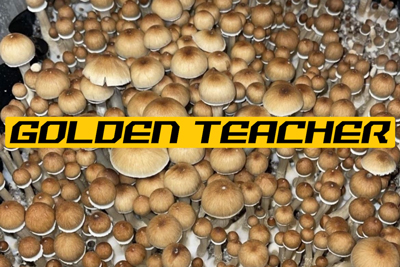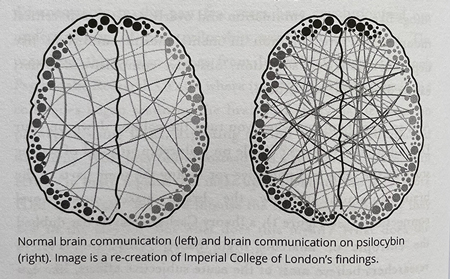Happy Memorial Day everyone! This year to celebrate, we thought we’d speak with a veteran who’s found mushrooms to be a great aid in their mental health and overall wellbeing. Adam* is a former Marine who left the service in chronic pain. He also struggled to process his experience and find purpose in life—until he found mushrooms.
Learn about his incredible journey, and how it eventually led him to start helping others with his consultation service, Valiant Medicinals, in this captivating interview.
And don’t forget, veteran’s receive 15% off all of our products year round!
Mushrooms for vets: Q&A with Valiant Medicinals
Inoculate the World: To start, I was hoping you could share why you decided to enlist.
Adam: For most of my life growing up, I wanted to be in law enforcement. I wanted to help people. At a certain point, I didn’t really know what to go to college for and I wasn’t really a classroom kind of person. That’s not the way I learned best. I had been thinking about the Marines, joining the reserves, and possibly using that to go to college.
And then my father passed when I was 17. And at that point it was just sort of like, I don’t know what I’m doing [with my life]. And this is a weird thing to say, but that’s sort of welcomed by the Marines. When you’re young and angry, that’s a really good way to tap into you. So him passing was a pretty big influence on my joining full time.
ITW: What was your role when deploying?
Adam: I had a couple different roles. I was stationed in North Carolina and we deployed every three to six months. This was before the global war on terror. So, these were pretty much routine deployments. My job was in the infantry as an infantryman, a rifleman.
Each company in the battalion has a different role when you’re deploying. Our job was helicopter insertion. Some companies come in by sea, some companies come in by land. Ours was quick insertion by helicopter.
ITW: You’ve told me before that left you with some chronic pain, correct?
Adam: There’s definitely the aspect of just repeated impact from landing when you’re fast roping. So you’re holding on with your feet and with your hands, and then just sort of scooting off the edge of the helicopter or sometimes out of a hole in the middle. Then you slide down until you hit the ground and you carry on.
There’s other steps you do after that, but there’s lots of practicing before you even do it off of a helicopter. And then when you actually do it off the helicopter, the conditions are just much more violent. The helicopter’s moving, the rope is moving. There’s nothing static about this anymore.
There was a particular time where I was a SAW gunner, which is the light machine gun that an infantryman carries. So, I had a full combat load, which I don’t remember how much it weighs, but it’s heavy. We had Vietnam era equipment at that time. So I’m using gloves and liners that are from the Vietnam War. And, at a certain point in sliding down, the heat from the rope started to come through my gloves, making it really hard to break and keep a grip. So I took a really hard landing at that point.
And, I don’t mean to be glib, but unless you’re dead, you have to continue training. So there was really nothing visibly wrong. I was in pain. But if you say you need to go see a corpsman or if something’s really wrong, then a lot of weird stuff happens where you’re considered a malingerer or it’s believed you’re just trying to get out of having to do your job. So I never said anything about the injury and it just kind of got worse and worse because I just kept pushing through with it.
ITW: What else happened while you served in the Marines that affected you?
Adam: I feel like it’s important to point out that you see a lot of things that are tough to see. You ultimately end up losing friends too early. Sometimes training accidents, sometimes in real world situations. I don’t think anybody gets through life unscathed, and I certainly don’t think anybody in any capacity from the military gets through unscathed.
[But also], after bootcamp when I went to the School of Infantry, SOI, I realized like, wow, this is different than what I expected. Like, I understood what I was signing up for, but this is different.
ITW: What were you hoping for?
Adam: I think I was hoping for direction.
ITW: And you were 18 when you signed up?
Adam: I had just turned 18 when I enlisted.
ITW: How long were you a Marine officially?
Adam: A little over four years. I did my four years of active duty and then I tried a reserve unit. I gave that a six month shot, but it’s really not the same as an active duty or at least back then it wasn’t the same mentality as an active duty unit. And so after six months, I quit.
ITW: So, you quit and then how are you feeling in your mind, body, spirit? What are you going through at the time? You’re only 22 years old, 23.
Adam: I was still very much looking for purpose and wondering what to do with my life.
I did a couple of part time jobs in security. I inquired to a couple of law enforcement [jobs], smaller police agencies. But then I ended up moving to Los Angeles. That’s where I got some security jobs as well. But yeah, still, pretty lost.
And at that point you really start understanding what you are processing, what you did those years ago, or start to. I don’t think I really did in my case. I think I found other ways to not have to deal with those things. If I’m being honest, it really wasn’t until my early or mid forties that I realized something had to change and actually began addressing anything.
ITW: Totally. No, I think that’s so normal too, but, if you are comfortable sharing like those other ways that you were dealing?
Adam: So, there’s some substance abuse going on.
ITW: You’re in chronic pain at this point too, right?
Adam: There’s chronic pain. I haven’t at that age even processed that there’s mental stuff happening. So it’s purely physical, chronic pain.
I also wasn’t recognized by the VA for having anything happen to me that was service connected that I should be taken care of for yet. According to the VA, nothing had happened for me to be in this pain, so they’re not treating me. I have no rating, basically, is what the issue is.
So, I am trying to navigate these waters on my own. And, yeah, you know, getting opiates and painkillers from friends was kind of how it started. I will also take responsibility for you know, enjoying the time that I had, up until things were a little ‘unsustainable’ as a family member put it.
ITW: I hear you. When did you realize it was unsustainable?
Adam: That lifestyle in Los Angeles. That was when [plant medicine] came into my life. I got a job at a dispensary, and I learned a lot more about the plant itself; how it helps me and how it can help other people. I was fortunate because that gave me the opportunity to have the medication I needed to get off of other things and start getting my life in order, I feel like.
After a couple of years, they asked if I wanted to learn to grow for them. This was in 2010. And I remember because that was the first time that the VA approved a disability rating that would get me care, after more than a decade of waiting.
Fast forward to 2014, I moved to Michigan. I eventually got a job for a dispensary there too, and was continuing to grow. That was also when I guess I feel like I started to get the whispers of like, now there are other things that need to be addressed.
At the time, I still didn’t realize there’s a correlation between how I’m feeling mentally and the chronic pain that I have that can be there most of the time, but can also spike out of nowhere and lock up an entire quarter of my body for weeks at a time. What I do have is a good regimen for my pain and what happens, but I still don’t feel like I’m functioning in a way that people should be functioning. I’m not enjoying things. I don’t want to go out. What if something happens suddenly in my neck while I’m out? I can’t drive home; that’s happened or worse.
So, I started doing some reading by people like Michael Pollan, Joe Dispenza, Alberto Villoldo, Eckhart Tolle and some others too. I’m starting to learn that we should be taking care of our brains as well, and there are ways to do it naturally. I realize I’ve already learned from [my experience with plant medicine] that there are more natural ways to do anything. And I don’t know how to say it yet, but I feel in my heart that we have everything we need to survive and thrive here. Like, why wouldn’t plants be able to contribute to our mental health as well?
ITW: Absolutely. And at this time you also mentioned the VA starting to help you. Do you want to share how they were helping you? Is it kind of in contradiction with how you’re finding out you can help yourself?
Adam: It is very much a contradiction. The first doctor I had, I was immediately told I had to stop using [plant medicine] because if I kept using [it], she wouldn’t treat me. So, yeah, there’s definitely a part of me that also existed in fear for quite some time because I’ve already been through opiate addiction and the other substance abuse issues; I know I don’t want those things.
ITW: How does the leap to mushrooms happen? Did somebody recommend it? You’re reading about it. Did you have an experience?
Adam: I’ve had mushrooms in the past, maybe once or twice, and it just wasn’t occurring to me as something that could help as much as they have. But, I started going to the VA for mental health, and they tried medication but it wasn’t working. [It was so bad that] during one of the visits, the doctor simply said, ‘Can’t you just watch TV or something and forget about what’s going on?’
So, that’s when I was just kind of like, all right, I’m going to have to figure this out on my own somehow. I was leery of psychedelics because of my past. I was also learning so much more about them from people that were way smarter than I am. And so at that point I figured, you know, if something has to change, then I’m going to have to figure out how to do it.
But, I didn’t know anyone to get them from. And so I taught myself and learned from other sources how to procure them for myself.
I tried various doses at first. I felt like a large reset would help. Before I even really got settled on microdosing, that’s when I started psychedelic assisted therapy with ketamine infusions. At that point, I’m talking to a team of doctors and a therapist that I can be totally honest with because it’s not the VA. They’re not going to use it against me, and they can formulate a treatment plan that works.
And it did work.
A lot of that was the initial blasting of the ketamine. But also talking with my therapist, and a couple of other psychedelic experiences. Then finding that microdosing, really helped me. I guess the easiest way to say it is, you know, I felt like I was getting my shit together.
ITW: Do you remember the strain or the dose that you were microdosing with and how long you did it for?
Adam: Yeah, they were generally, Golden Teacher.
I still dip into them. I even told myself within the last day or so that I should probably hop on a cycle or so for a month. And for me, the trick is to stay on it past the point where I think I’m feeling good. Like, keep it up for a little longer and then see how it goes.
ITW: And how does it make you feel? Like on a day to day basis, it’s really sub perceptual, right?
Adam: Yeah, I don’t want to feel like I’ve taken them. Because as much as a great pain medication and assistance I get from [my other plant medicine], which I really enjoy, I don’t really want to be mixing the two.
So, I take just enough to get what I would call an attitude adjustment. That if I look at a list or if I see something that needs to be done, I’m not overwhelmed. I’m not negative about what has to be done or overwhelmed and not doing it and then critiquing myself for being a piece of shit for not doing it.
ITW: So relatable. Less dread.
Adam: Yes. What was such a great visual for me is that the brain is full of these pathways that either we don’t use or are just negative and can be a negative thought pattern. That we stay in, right? And mushrooms can help clear out those old pathways and help us create new ones.
And same with ketamine. The neuroplasticity is such a gift.
ITW: I agree. That’s beautiful. I actually used that visual in my book, too. Are there any new routines that you’ve started or anything that mushrooms have helped with that you never thought you would do?
Adam: Having a routine, I would say for sure, and being consistent with that routine—they’ve helped in that aspect. Getting me out of my head and going to exercise because that’s another thing that, for me to exist, unfortunately, I need to do, as much as I don’t want to anymore. I played sports as a kid and I was in the Marines. I coached kids after, I was very athletic and my body wants to move. Even though the pain brain connection tells me not to.
That’s another thing that twists at someone’s mental health, if they’re not doing that kind of work. I remember specifically taking microdoses or maybe even slightly more of a dose on days when I started doing just body weight movement stuff because I know enough to know that now we’re talking about muscle memory and a mind body connection that I know is there. I just haven’t used it in decades because of how locked up and different my body has been. Or immobile, I should say. So being aware of the benefits of mushrooms and using those, that’s a perfect time to clear out the cobwebs and do movement and make room for new neural connections.
Grounding is another thing. Just going to the backyard and taking my shoes off and standing there. And like, I don’t know, it sounds kind of silly, but I do that. But my belief is that this really isn’t how we were meant to exist. This is just where we are now. Like modernity and prescription pills and all that. Lack of nature. I mean, just going to stand in my backyard is enough to make me feel something. So that tells me a lot.
ITW: My last question is: What would you want to say or recommend to other vets who are looking for help or also feeling a little directionless? Do you have any words of wisdom?
Adam: Yeah, I would say you’re definitely not alone. I mean there are so many of us. There’s this group that has helped me a lot called the Balanced Veterans Network. They are okay with talking about [alternative therapies].
I’m also in the process of starting a consultation service to help others navigate this difficult terrain called Valiant Medicinals. The plan is to be able to share resources and help people. If you’d like to contact me, there’s an email sign up on the site. I’m also open to any help if anybody has ideas, please reach out. Thanks so much.
This interview has been edited for length and clarity.
*Last name withheld for privacy.
DISCLAIMER: This article is not intended for medical advice. It is intended for informational purposes only. It is not a substitute for professional medical advice, diagnosis or treatment. Never ignore professional medical advice in seeking treatment because of something you have read on the InocuateTheWorld Site.




To ‘Adam’..I’m so glad you found a path forward from your chronic pain and psychological suffering. Our VA doesn’t do enough to help our veterans who have put so much of their body and soul into serving our country. My wife worked with disabled veterans at a place associated with a dispensary and some of the stories she heard were very sad.
I’m glad you’ve found a way forward and just wanted to tell you that the majority of Americans are thankful for your service to our country!
Thank you for sharing this story. I got into mushrooms to help my husband, a former Marine, who has shared a very similar battle with the VA, processing events, and readjusting to civilian life after several years of deployments during the war on terror. So much of what Adam has said here sounds so much like my husband. It’s truly amazing what micro-dosing can do, and hearing another person’s experiences and approach to using mushrooms really helps. It’s not always easy to find other people with similar backgrounds to compare experiences and ideas with in this realm.
Thanks for posting this interview. And thanks for your service, Adam.
Hey, just learned about the vets discount! I sent in for it. Thanks!